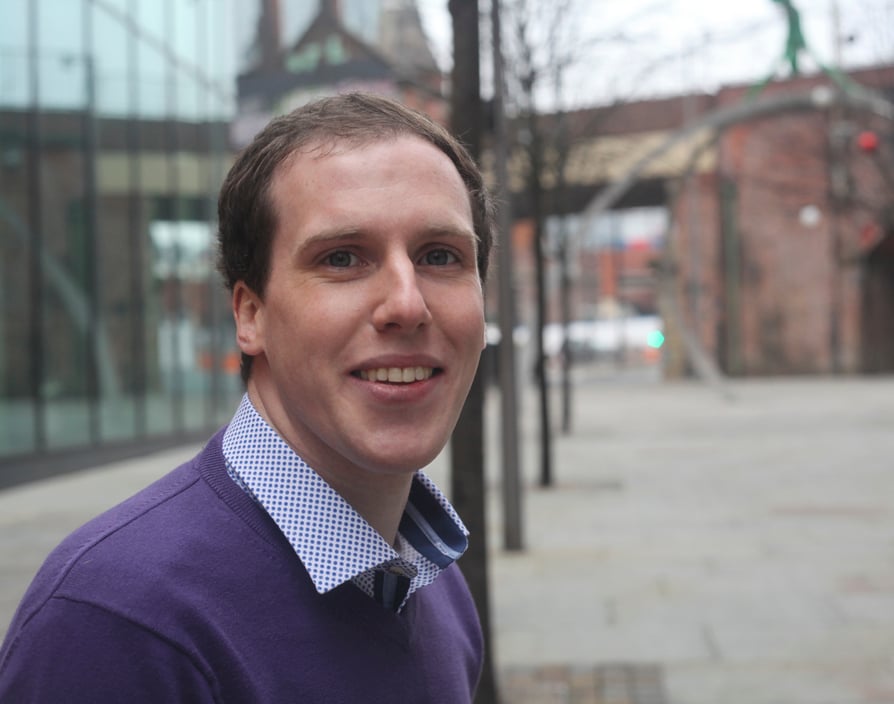Think of the biggest startup success stories from the last decade and chances are they’ve kicked off in a similar way: with an entrepreneur in a hoodie writing code in a dorm room. Companies like Snapchat, Facebook and Reddit all first saw the light of day on university campuses. But while startups in the States benefit from the support of student-managed funds like Rough Draft or the Dorm Room Fund, British companies launched from university dorms haven’t benefitted from access to similar funds. That’s something Michael Howe aims to change with the launch of Campus Capital, the UK’s first combined on-campus VC and early-access fund that’s partly run by students.
Ironically though, while Howe is the co-founder of an enterprise aimed at supporting student startups, he’s never attended university himself. Instead, he learned everything he knows from running a string of businesses, something that was kickstarted the day a 14-year-old Howe and his best friend happened on a Sega Mega Drive game console in a rubbish bin. “Instead of keeping it, we decided to sell it on eBay,” says Howe. Inspired by this experience, the friends used the money to launch Cheap Auctions, a business that bought and sold surplus items ranging from teapots to candles on eBay. Even though they both enjoyed dealing with “weird and wonderful things”, difficulties scaling their operations meant that they decided to close the business four years later.
While his partner went on to attend university, Howe launched Ultimate Competitions, a marketing agency that raised money for charitable organisations. Unfortunately, the 2008 recession would put a stop to the company’s growth one year later and, while Howe stuck with the business despite the financial downturn, he now concedes it would have been better to cut his losses. “The one thing that I learned was that you have to know when it’s time to just walk away,” he says. “Don’t spend years saying that you can save it, thinking you know better than everyone else.”
However, closing the business did present him with the opportunity to focus on a new venture: Otus Labs, the tech startup helping businesses map and adapt to changing customer behaviours. Having successfully run the business for a few years, Howe was approached three years ago by the University of Sheffield. “They thought that I would be a good fit at their enterprise unit to help and support their startups,” explains Howe.
One issue in particular needed his immediate attention: once startups had reached a certain scale, many Sheffield-launched startups moved down south instead of remaining in and strengthening the local business landscape. “That’s when I suggested the university take a look at the US model,” says Howe. By creating funds like the ones across the pond, students would not only learn how to run venture funds themselves, they would also be able to raise money for their enterprises whilst staying in Sheffield, thus establishing a healthy startup community in the Yorkshire city. Off the back of this conversation, he and his co-founder Samantha Deakin Hill, another serial entrepreneur and fellow advisor to the institution, partnered with the university to launch Campus Capital.
The main thing Howe, his partner and the student VCs under their wings are looking for is founders that can avoid one crucial mistake: being too eager. “There are too many companies that go out guns blazing and try to scale too quickly,” he says. “Entrepreneurs are really eager to get off the starting block but eagerness is sometimes part of failure.” Attempting to run before they can walk is the downfall of many a startup: for this reason Howe is looking for founding teams that have in place a thorough plan on how they can use the money to validate the concept and grow their business. “If you can show that you can make good use of capital, then chances are you will hit gold,” he says.
Only hand-picking startups that can demonstrate this quality certainly bodes well for the future of Campus Capital, which went and interviewed their first student startups this week. And given that the University of Manchester recently became Campus Capital second partner and that more are in the pipeline, budding entrepreneurs’ chances to succeed on these shores seem to have improved considerably. ![]()
Share via:








































